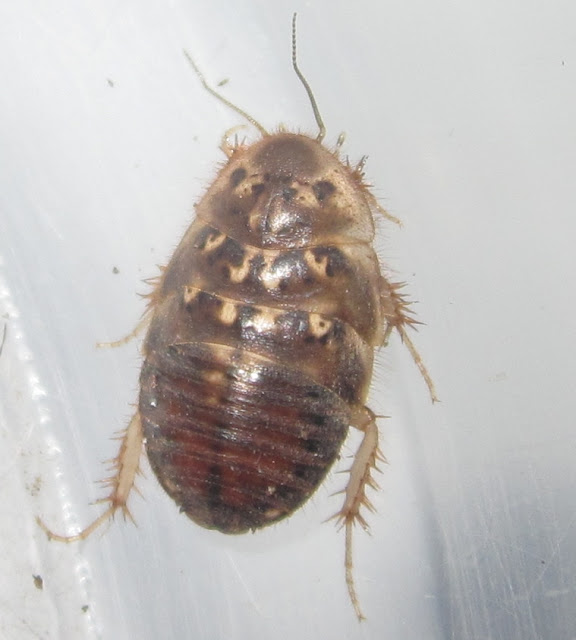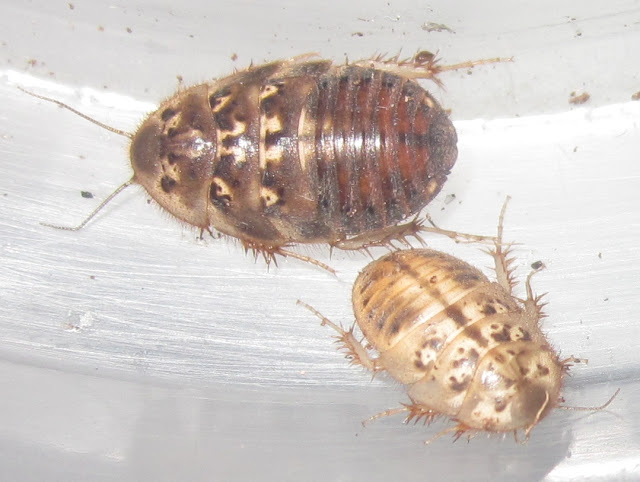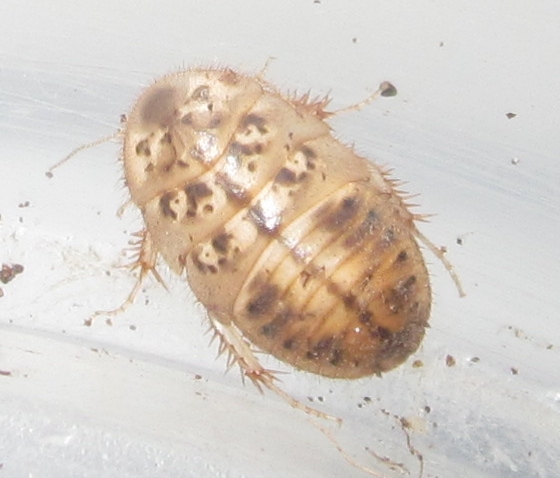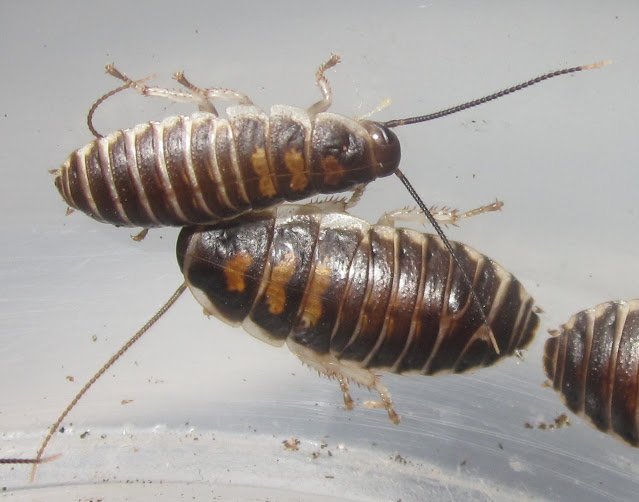Roachcrossing Winter '23 Package Series Pt. 2/5
These are pretty new to culture, and are unidentified for now, (though hopefully I can provide a tentative ID when I have an adult male). They seem to be a pretty simple and straightforward Arenivaga to breed, so I'm hoping I'll succeed in starting up a nice little colony of these cuties. 😊
I have my group housed in a well ventilated container with an inch or so of coconut fiber as the substrate, topped with a bit of leaf litter. Keeping one third of the substrate humid, the rest bone dry, and I have them at around 75-80F°. I'm feeding them dog food in addition to the leaf litter.
Here are some pictures of a couple nymphs:
A very typical Arenivaga nymph patterning, with some lovely red hues on the abdomens of large nymphs. Looking forward to seeing adults of this species for sure! 😁
Next up, Kyle also sent me 5 small nymphs of Gromphadorhina oblongonota, the "Wide Horn Hisser"! 😃 I've never kept this species before, though they're a hobby staple, one that's become rather uncommon in the US hobby (well, pure stock has at least). This is likely due to the slow breeding rates of this species, as well as the initial difficulty some people experience in getting females to give birth, period. The adults of this species can reach a very large size, especially major males. There's debate as to whether these are the longest species of hisser, period, really the only possible contender would be Princisia vanwaerebeki "Androhamana" IMO (some Gromphadorhina sp. "Unidentified" major males can supposedly rival those of oblongonota, though for whatever reason, true major "Unidentified" males are exceedingly rare).
I've got my five nymphs housed in a well ventilated container with a thin layer of coconut fiber as the substrate, with bark and cardboard rolls for hides. I'm keeping a third of the setup humid, the rest dry, and have them at around 75-85F°. I'm feeding them dog food and fruits, might throw in some leaf litter for them as well.
Here are some pictures of the lil' giants:
Really looking forward to watching these grow, can't wait to see adults of this species in person! 😀
Well, that does it for this post, thanks for reading, hope everyone enjoyed, stay safe, and I'll see you all next time! 😉












No comments:
Post a Comment